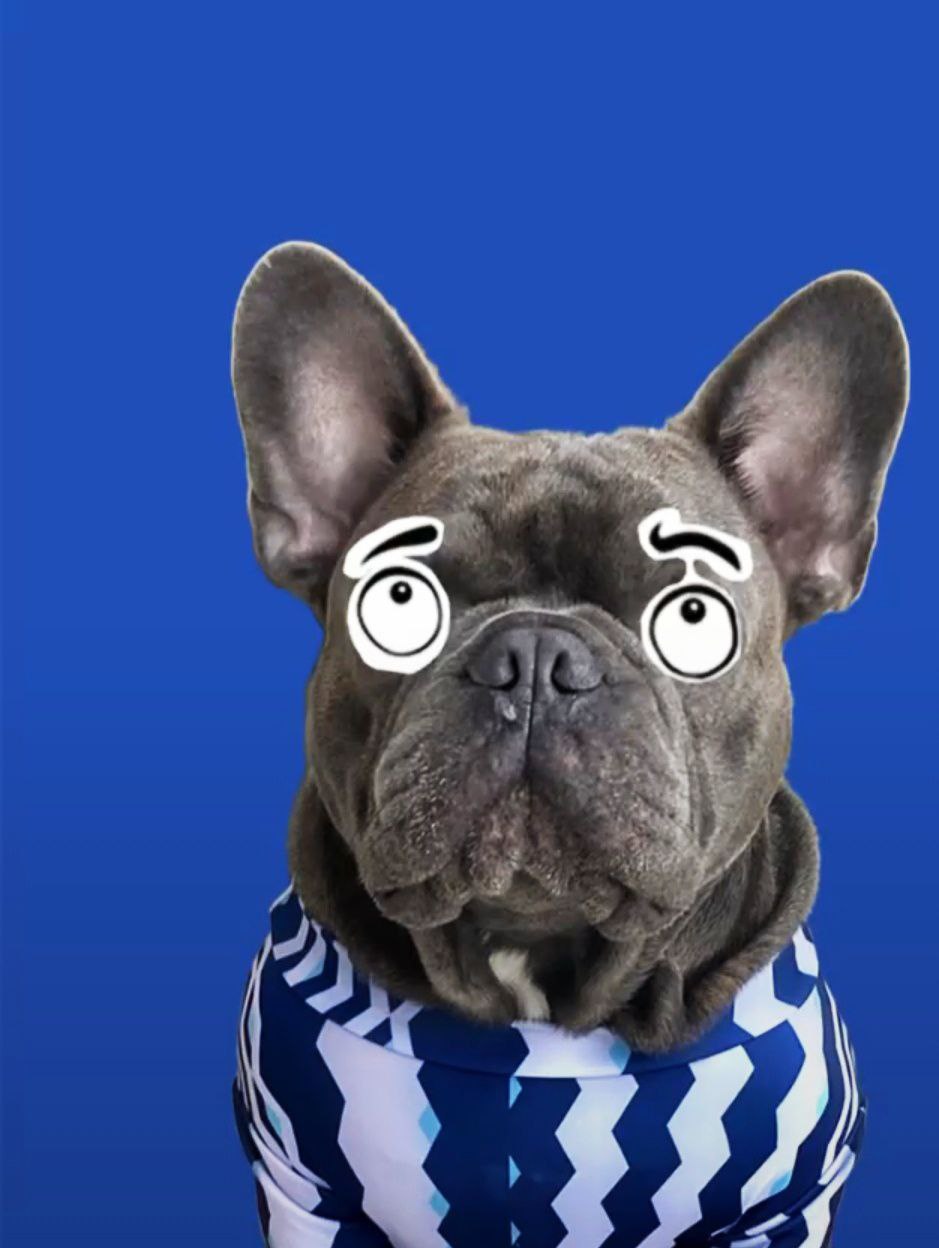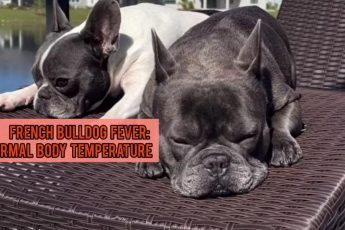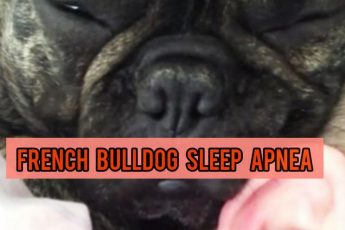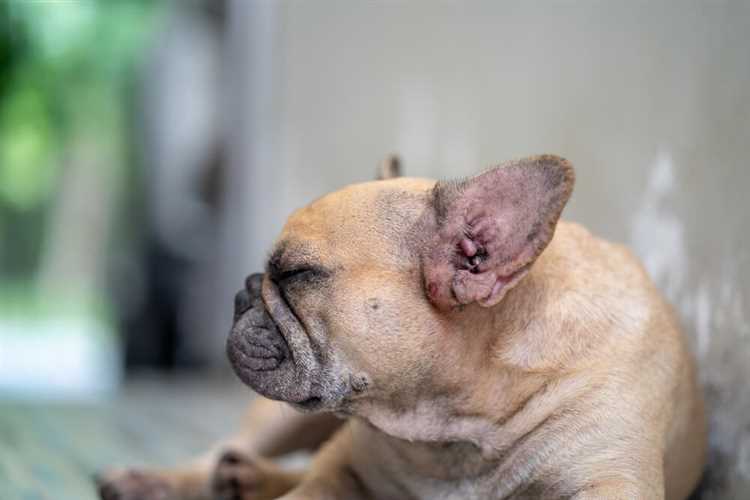
French Bulldogs are adorable companions known for their playful nature and affectionate personalities. However, like any other breed, French Bulldogs are prone to allergies. Allergies in French Bulldogs can cause discomfort and affect their overall wellbeing. Therefore, it’s crucial for pet owners to understand and be aware of the common allergens that can trigger reactions in their beloved furry friends.
Pollen allergies: Just like humans, French Bulldogs can be allergic to pollen from various plants and trees. This is known as hay fever or seasonal allergies. When exposed to pollen, French Bulldogs may experience symptoms such as itching, sneezing, runny nose, and watery eyes. It’s essential to keep your French Bulldog indoors during periods of high pollen count and regularly clean their paws and coat to minimize the risk of pollen allergy.
Food allergies: Food allergies are another common issue among French Bulldogs. Certain ingredients in their diet, such as grains, dairy, chicken, or beef, can trigger allergic reactions. Symptoms of food allergies in French Bulldogs can include itching, gastrointestinal issues, ear infections, and skin inflammation. If you suspect your French Bulldog has a food allergy, consult with a veterinarian who can recommend an elimination diet or perform allergy testing to identify the specific allergens.
Environmental allergies: French Bulldogs can also develop allergies to environmental factors, such as dust mites, mold, or certain cleaning products. These allergens can lead to respiratory issues, itchy skin, hot spots, and ear infections. Regularly vacuuming your home, using hypoallergenic bedding, and avoiding harsh cleaning products can help minimize the risk of environmental allergies for your French Bulldog.
In conclusion, allergies are a common issue in French Bulldogs, but being aware of the triggers can help you manage and alleviate their symptoms. Regular veterinary check-ups, proper grooming, a balanced diet, and a clean living environment are key to keeping your French Bulldog healthy and happy, even with allergies. If you suspect your French Bulldog has allergies, always consult with a veterinarian for a proper diagnosis and treatment plan.
- Common Allergies in French Bulldogs: Understanding and Managing Reactions
- Environmental Allergies
- Food Allergies
- Food Allergies in French Bulldogs: Identifying Triggers and Providing a Balanced Diet
- Identifying Food Allergies
- Providing a Balanced Diet
- Seasonal Allergies in French Bulldogs: Recognizing Symptoms and Minimizing Discomfort
- Environmental Allergies in French Bulldogs: Creating a Safe and Allergy-Free Living Space
- Flea Allergies in French Bulldogs: Preventing Infestations and Treating Allergic Reactions
- Contact Allergies in French Bulldogs: Identifying Irritants and Taking Preventive Measures
- Allergy Testing for French Bulldogs: Determining the Root Causes and Finding Effective Solutions
- Question-answer:
- What are some common allergies in French Bulldogs?
- What are the symptoms of allergies in French Bulldogs?
- How can I determine if my French Bulldog has allergies?
- Can allergies in French Bulldogs be cured?
- Are French Bulldogs more prone to allergies compared to other dog breeds?
Common Allergies in French Bulldogs: Understanding and Managing Reactions
Allergies are a common issue among French Bulldogs, and understanding and managing their reactions is essential for their well-being. French Bulldogs can be allergic to various environmental factors, food ingredients, and even certain medications. It is important for owners to be aware of these common allergies and take necessary precautions to keep their French Bulldogs healthy and comfortable.
Environmental Allergies
Environmental allergies are one of the most common types of allergies in French Bulldogs. These allergies can be triggered by pollen, dust mites, mold spores, and other airborne allergens. Symptoms of environmental allergies can include itching, redness, sneezing, and respiratory problems. Managing these allergies often involves keeping the dog’s living environment clean, using air purifiers, and avoiding areas with high levels of allergens.
Food Allergies
Food allergies can also affect French Bulldogs and cause a range of symptoms, including skin rashes, gastrointestinal issues, and ear infections. The most common food allergens for French Bulldogs are beef, dairy products, chicken, eggs, and grains. Identifying the specific ingredient causing the allergy can be challenging, and it often requires a process of elimination through a carefully controlled diet. Working with a veterinarian to create a hypoallergenic diet can help manage food allergies in French Bulldogs.
Additionally, French Bulldogs may develop allergies to certain medications, such as antibiotics or flea preventatives. If your French Bulldog experiences a reaction to a medication, it is important to inform your vet and discontinue use immediately.
In conclusion, understanding and managing allergies in French Bulldogs is crucial for their health and well-being. By being aware of common environmental and food allergens, monitoring their reactions, and taking appropriate measures, owners can help alleviate their French Bulldogs’ allergies and ensure a happy and healthy life for their beloved pets.
Food Allergies in French Bulldogs: Identifying Triggers and Providing a Balanced Diet
French Bulldogs are known for their sensitive digestive systems, making them prone to food allergies. It is important for owners to be aware of the common triggers and to provide a balanced diet to keep their furry friends healthy and happy.
Identifying Food Allergies
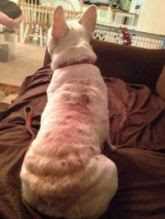
Food allergies in French Bulldogs can manifest in various ways, such as gastrointestinal issues, skin problems, or allergic reactions. Some common symptoms include vomiting, diarrhea, itching, redness, and swelling. To identify the culprit, it is recommended to keep a food diary and note any changes or reactions after meals.
Common Food Triggers
1. Protein Sources: French Bulldogs can be allergic to certain proteins like beef, chicken, or fish. It is essential to try different protein sources to pinpoint the specific allergy and eliminate it from their diet.
2. Grains: Wheat, corn, and soy are common allergens in French Bulldogs. Opting for grain-free or limited ingredient diets can help alleviate their symptoms and provide healthier alternatives.
3. Additives and Fillers: Artificial preservatives, colors, and flavors can trigger allergic reactions in French Bulldogs. Reading labels carefully and choosing food with minimal additives and fillers can reduce the risk of allergic responses.
Providing a Balanced Diet
Once the food triggers are identified, it is crucial to provide a balanced diet that meets their nutritional needs. Consultation with a veterinarian or a canine nutritionist can help in formulating an appropriate meal plan. Here are some general guidelines:
1. Novel Protein Sources: Introduce novel protein sources like venison or duck to replace the allergenic ones. This can help alleviate their symptoms while providing the necessary nutrients.
2. Limited Ingredient Diets: Opt for limited ingredient diets that are free from common allergens like grains, soy, and artificial additives. These diets usually contain a single source of protein and a few easily digestible carbohydrates.
3. Balanced Nutritional Supplements: Some French Bulldogs may require additional nutritional supplements to support their overall health. Omega-3 fatty acids, glucosamine, and probiotics are beneficial in promoting healthy skin, joints, and digestion.
Remember, every French Bulldog is unique, and their dietary needs may vary. It is essential to monitor their reactions and work closely with a veterinary professional to ensure they are receiving a well-rounded and allergen-free diet.
Seasonal Allergies in French Bulldogs: Recognizing Symptoms and Minimizing Discomfort
Seasonal allergies can affect French Bulldogs, just like any other breed. It is important for dog owners to recognize the symptoms and take steps to minimize their discomfort.
Recognizing the symptoms
Seasonal allergies can manifest in a variety of ways in French Bulldogs. Common symptoms include:
- Sneezing
- Itchy skin
- Runny nose
- Watery eyes
- Red and inflamed skin
- Excessive scratching
If you notice any of these symptoms in your French Bulldog, it is important to consult a veterinarian for proper diagnosis and treatment.
Minimizing discomfort
While it may not be possible to completely eliminate your French Bulldog’s seasonal allergies, there are steps you can take to minimize their discomfort:
- Keep your dog’s living environment clean and free of allergens, such as dust and pollen. Regularly vacuum and dust your home to reduce the presence of these allergens.
- Monitor your dog’s exposure to potential allergens. Avoid taking them for walks during high pollen count or windy days.
- Bathe your dog regularly using a hypoallergenic shampoo to soothe their irritated skin and remove allergens that may be present in their fur.
- Consult your veterinarian about allergy medication options. They may recommend antihistamines or other medications to help alleviate your French Bulldog’s symptoms.
- Consider using a humidifier in your home, as dry air can worsen your dog’s allergy symptoms. A humidifier can help keep their nasal passages moist and reduce irritation.
- Try natural remedies, such as adding omega-3 fatty acids to your French Bulldog’s diet. These supplements can help improve their skin health and reduce the severity of allergic reactions.
By recognizing the symptoms of seasonal allergies in your French Bulldog and taking steps to minimize their discomfort, you can help your furry friend live a happier and healthier life.
Environmental Allergies in French Bulldogs: Creating a Safe and Allergy-Free Living Space
French Bulldogs are known to have a predisposition to allergies, and environmental allergens can be a major trigger for their reactions. These allergens can come from various sources in their living space, such as dust mites, pollen, mold spores, and certain chemicals. To ensure that your French Bulldog stays healthy and free from allergies, it is essential to create a safe and allergy-free living environment for them.
Firstly, it is crucial to keep your French Bulldog’s living space clean and well-maintained. Regularly vacuuming the floors, furniture, and curtains can help remove dust mites and other allergens. Using hypoallergenic cleaning products will also minimize the exposure to harsh chemicals that can trigger allergies in French Bulldogs.
Additionally, investing in an air purifier can significantly improve the air quality in your French Bulldog’s living space. Air purifiers can effectively filter out airborne allergens, including pollen, mold spores, and pet dander. Be sure to choose an air purifier with a HEPA filter, as it can capture even the smallest particles and provide a clean and allergy-free environment for your French Bulldog.
Another crucial step in creating an allergy-free living space is to pay attention to your French Bulldog’s bedding. Choosing hypoallergenic bedding materials can help minimize the risk of allergic reactions. Look for bedding made of natural fibers, such as organic cotton or bamboo, as synthetic materials can trap allergens more easily.
Furthermore, proper ventilation is essential for maintaining a clean and allergy-free living space for your French Bulldog. Ensure that your home has adequate ventilation, especially in areas where your French Bulldog spends most of their time. Opening windows regularly can help circulate fresh air and reduce the concentration of allergens indoors.
Last but not least, maintaining good hygiene practices for your French Bulldog can also help prevent and manage environmental allergies. Regularly bathing your French Bulldog with a hypoallergenic shampoo can help remove any allergens that may be stuck in their fur. Additionally, keeping their paws clean after outdoor walks can prevent them from bringing allergens into their living space.
By following these steps and creating a safe and allergy-free living space for your French Bulldog, you can significantly reduce the risk of environmental allergies and provide them with a healthier and happier life.
Flea Allergies in French Bulldogs: Preventing Infestations and Treating Allergic Reactions
Flea allergies are a common problem in French Bulldogs and can cause significant discomfort for your furry friend. These allergies occur when a French Bulldog has an allergic reaction to the saliva of fleas. Even a single flea bite can trigger a severe allergic reaction in some dogs, leading to intense itching, redness, and inflammation of the skin.
Preventing fleas from infesting your French Bulldog is essential in managing and preventing allergic reactions. Here are some preventive measures you can take:
- Regularly inspect and groom your French Bulldog. Look for any signs of fleas, such as tiny black specks (flea dirt) or flea eggs in their fur. If you spot any, act immediately to eliminate them.
- Use a flea comb to remove any existing fleas or flea dirt from your dog’s coat. Comb through their fur thoroughly, paying close attention to the neck, tail, and groin areas where fleas often hide.
- Keep your home clean and clear of fleas. Vacuum regularly, especially in areas where your French Bulldog spends the most time. Wash your dog’s bedding frequently in hot water to kill any potential fleas or eggs.
- Treat your French Bulldog with a regular flea preventive medication recommended by your veterinarian. These medications can help keep fleas at bay and reduce the risk of allergic reactions.
- Avoid taking your French Bulldog to areas with a high risk of flea infestations, such as wooded areas or parks with tall grass.
If your French Bulldog does develop a flea allergy, it’s essential to take immediate action to relieve their discomfort and prevent further complications. Here are some strategies for treating allergic reactions:
- Administer a prescribed medication, such as antihistamines or corticosteroids, to reduce itching and inflammation caused by the allergy.
- Apply soothing topical treatments, such as aloe vera gel or oatmeal-based shampoos, to alleviate skin irritation and promote healing.
- Consult with your veterinarian about other possible treatment options, such as allergy shots or immunotherapy, which can help desensitize your French Bulldog to flea saliva.
- Continue with regular flea preventive measures to prevent future allergic reactions.
By staying vigilant and taking proactive measures to prevent flea infestations, you can help ensure that your French Bulldog stays happy, healthy, and free from allergic reactions caused by fleas.
Contact Allergies in French Bulldogs: Identifying Irritants and Taking Preventive Measures
Contact allergies can be a common issue in French Bulldogs, causing discomfort and irritation. It is important for owners to identify the irritants that trigger these allergies and take preventive measures to keep their furry friends healthy and comfortable.
One of the most common causes of contact allergies in French Bulldogs is certain types of fabrics or materials. Dogs can react to synthetic materials such as nylon or polyester, as well as natural fibers like wool or cotton. It is essential to pay attention to the bedding, collars, and harnesses used for your French Bulldog and opt for hypoallergenic options or materials that are less likely to cause skin irritation.
Some cleaning products or grooming items can also trigger contact allergies in French Bulldogs. Harsh shampoos, detergents, or even certain fragrances can cause skin reactions. When bathing or grooming your French Bulldog, make sure to use gentle, hypoallergenic products that are specifically formulated for dogs with sensitive skin.
Plants and grasses can also be potential irritants for French Bulldogs. Contact with certain plants or grasses can cause skin allergies, resulting in itching, redness, or even rashes. It is important to be aware of the plants and grasses present in your surroundings and avoid letting your French Bulldog come into contact with them, especially if they have a history of allergies.
Regular grooming and cleaning can also help prevent contact allergies in French Bulldogs. By regularly brushing and cleaning your dog’s coat, you can remove any potential irritants, such as pollen or dust, that may cause allergies. Additionally, keeping your French Bulldog’s living area clean and free from dust mites can significantly reduce the risk of contact allergies.
If you suspect that your French Bulldog has a contact allergy, it is crucial to consult a veterinarian. They can help determine the specific trigger and advise you on the best course of action. In some cases, they may recommend allergy testing or prescribe medications to alleviate the symptoms.
By identifying the irritants that cause contact allergies in French Bulldogs and taking preventive measures, owners can ensure their furry friends live a happy and healthy life free from discomfort and irritation.
Allergy Testing for French Bulldogs: Determining the Root Causes and Finding Effective Solutions

Allergies can be quite common in French Bulldogs, and they can result in a range of uncomfortable symptoms. Identifying the root causes of these allergies is essential in order to find effective solutions and provide relief for our furry friends. One of the most reliable ways to determine the causes of allergies in French Bulldogs is through allergy testing.
Allergy testing involves exposing the French Bulldog to a variety of potential allergens in a controlled environment. This can be done through a series of skin patch tests or blood tests. Skin patch tests involve applying small amounts of suspected allergens to the dog’s skin and monitoring for reactions. Blood tests, on the other hand, measure the dog’s immune response to specific allergens.
Once the allergens have been identified, it becomes easier to develop a treatment plan tailored to the French Bulldog’s specific needs. This may involve avoiding the allergens altogether, making changes to their diet, or using medications to manage their symptoms. In some cases, immunotherapy may be recommended, which involves gradually exposing the dog to small amounts of the allergen to desensitize their immune system.
It’s important to note that not all allergies in French Bulldogs can be completely cured. However, with proper management and avoidance of allergens, their symptoms can be minimized and their quality of life improved. Regular follow-up visits with a veterinarian are crucial in monitoring the dog’s progress and making necessary adjustments to their treatment plan.
In conclusion, allergy testing is a valuable tool in determining the root causes of allergies in French Bulldogs. It provides crucial information to develop an effective treatment plan, allowing these beloved pets to live a comfortable and happy life. If you suspect that your French Bulldog is suffering from allergies, consulting with a veterinarian and considering allergy testing is a proactive step towards finding solutions and providing relief.
Question-answer:
What are some common allergies in French Bulldogs?
Common allergies in French Bulldogs include food allergies, environmental allergies (such as pollen or dust mites), and skin allergies (such as allergic reactions to flea bites or certain grooming products).
What are the symptoms of allergies in French Bulldogs?
Symptoms of allergies in French Bulldogs can include itching, redness or inflammation of the skin, hair loss, ear infections, excessive licking or chewing of paws, and gastrointestinal problems.
How can I determine if my French Bulldog has allergies?
If you suspect that your French Bulldog has allergies, you should consult with a veterinarian. They will be able to perform tests, such as skin or blood tests, to determine the specific allergens causing the reactions.
Can allergies in French Bulldogs be cured?
Allergies in French Bulldogs cannot be cured, but they can be managed. Treatment options can include avoidance of allergens, medication to relieve symptoms, and immunotherapy (allergy shots) to desensitize the dog’s immune system.
Are French Bulldogs more prone to allergies compared to other dog breeds?
French Bulldogs can be more prone to allergies compared to some other dog breeds. Their short noses and compacted airways can make it more difficult for them to breathe, making them more susceptible to respiratory allergens. However, it ultimately depends on the individual dog.

